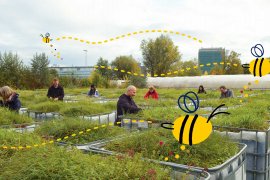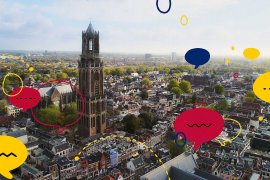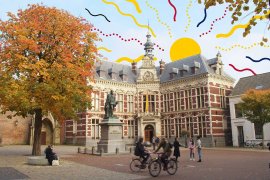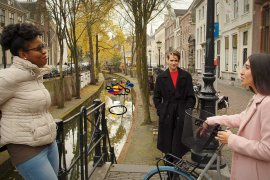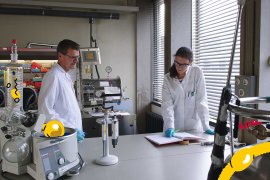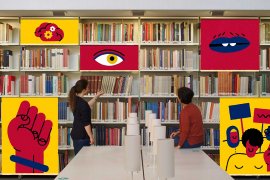The principles that guide our strategy
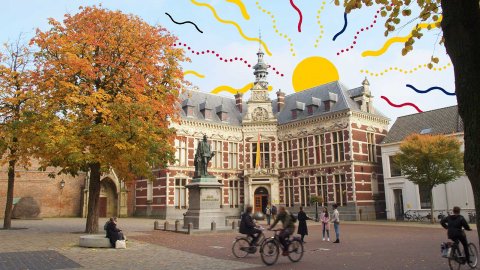
In this Strategic Plan, Utrecht University sets out its course for the coming years. With our position and mission as a firm foundation, and taking environmental factors and challenges into account, we have formulated our strategy via five guiding principles:
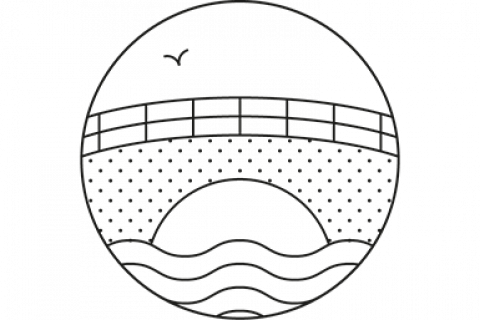
Collaboration across borders
Collaboration across borders: an international university with multidisciplinary education and research.
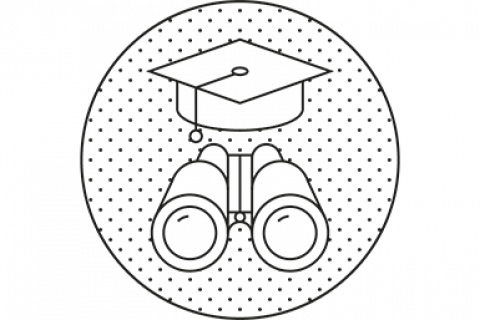
Future-proof teaching culture
A future-proof teaching culture that focuses on quality and innovation.
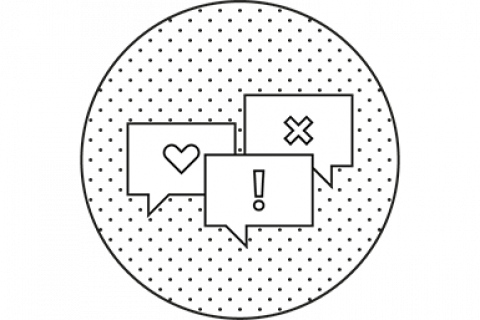
Close-knit community
A close-knit community of involved students, employees and alumni, in which there is mutual care and concern as well as space for development, connecting with one another, knowledge sharing and an open dialogue.
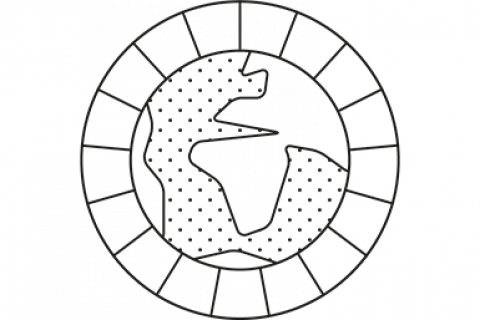
Sustainable development
A focus on sustainable development: the Sustainable Development Goals will form an integral part of education, research and operational management.
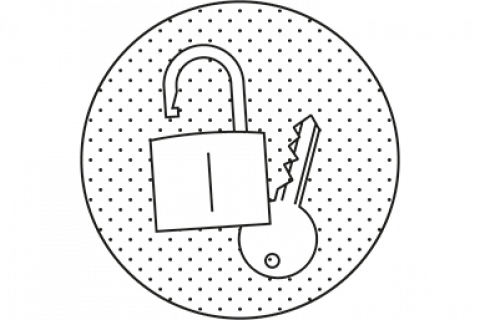
Open Science
The transition to Open Science, in which we will prioritise both broader recognition and appreciation of our employees and the impact of education and research.
We will expound on these five guiding principles below. The specific implications for the organisation, the education and research and the faculties will be set out in subsequent chapters.
Cross-border collaboration
As a society, we are facing large-scale and complex challenges. Answers to these challenges can only be found by bringing together different perspectives and through intensive cooperation that transcends the boundaries of different disciplines. To that end, we have invested in four major multidisciplinary strategic research themes: Dynamics of Youth, Institutions for Open Societies, Life Sciences and Pathways to Sustainability. Excellent disciplinary research provides the basis for these four strategic themes. In coming years, thanks to the bond between research and teaching, the chosen profile will become more evident in our education. Based on the themes, our researchers will naturally collaborate with partners in government, the business community and civic society organisations.
Collaboration across borders is also the principle underlying the alliance we have entered into with Eindhoven University of Technology, Wageningen University & Research and University Medical Center Utrecht. By taking advantage of the complementary strengths of our four institutions, we intend to strengthen and innovate teaching and research through concrete projects in the coming period as well. For students, numerous options for charting a broad personal development pathway are emerging.
An international environment promotes a stimulating academic and intellectual climate, an open attitude among staff and students and the expansion of scientific knowledge; it also improves students’ qualifications for a globalising job market.
We are an international university. An international environment promotes a stimulating academic and intellectual climate, an open attitude among staff and students and the expansion of scientific knowledge; it also improves students’ qualifications for a globalising job market. In the years ahead, Utrecht University intends to once again take great strides in the area of internationalisation: within Europe and worldwide, we want to make more effective use of our international networks and partnerships. We are working towards a ‘warm welcome’ and the proper embedding of our international students and employees.
Future-proof educational culture
Cross-discipline mobility is a key pillar of our teaching model. We offer our students freedom of choice so that they can, on the one hand, develop a broad knowledge base and, on the other, effectively prepare themselves for the job market, where there is a demand for professionals who possess both specialised knowledge and a broad skill set. The University will take additional steps to promote students’ mobility between disciplines, faculties and collaborative partners.
We have a reputation to uphold with regard to educational innovation and the professionalisation of lecturers.
We have a reputation to uphold with regard to educational innovation and the professionalisation of lecturers. In recent years, our efforts have included the introduction of blended learning via the Educate-it programme. By establishing the Centre for Academic Teaching and Learning, we have brought together all initiatives in the areas of sharing knowledge and lecturer professionalisation. Utrecht University has a long tradition of placing value on education. In the coming period, explicit attention will similarly be devoted to the importance of education in the evaluation and development of academics.
Because knowledge is increasing and changing so rapidly, alumni will need to pursue continuous professional development after graduation. Together with stakeholders, Utrecht University is investing heavily in the development of a flexible curriculum for professionals in different phases of their life and career.
Close-knit community
Utrecht University strives to be a good employer with care and concern for all our people. We want to be a university where students and employees feel at home and for which alumni cherish warm feelings. We are a tight-knit university community: people share a sense of involvement with one another and there is space for development, connecting with one another, knowledge sharing and an open dialogue. We feel it is vital that the University is accessible and inclusive and that students and employees are considerate of one another and feel they are part of a community in which interest groups, cultural communities and social, study and sports-related associations are mutually complementary.
We are a tight-knit university community: people share a sense of involvement with one another and there is space for development, connecting with one another, knowledge sharing and an open dialogue.
While the well-being of students and employees is of vital importance, we have seen an increase in workload in recent years. Managing the workload of students and employees is a complex undertaking that requires a cohesive package of activities. Utrecht University is continually in search of concrete ways to reduce that workload, such as the agreement to offer temporary lecturers a minimum appointment of 0.7 FTE for a period of four years. For this reason, we will continue to invest in supervision and support, personal development and leadership. We plan to continue prioritising the issue of workload and expect, through additional attention and appreciation for collaboration and team achievements, to contribute effectively to a healthy work and study climate.
Focus on sustainable development
Based on our social mandate as a public institution, we wish to contribute to the creation of a better world. In the recent period, we have made major strides in our efforts to realise sustainable operations, geared toward curtailing CO2 emissions, reducing energy consumption, deploying sustainable alternatives and raising awareness among students and staff.
We wish to contribute to the creation of a better world.
Unlike in previous years, in the coming years we will make use of the United Nations’ Sustainable Development Goals (SDGs) as a helpful instrument as we seek to identify challenges and potential solutions. Our education and research contribute to enhanced knowledge of all 17 SDGs. The SDG perspective is an excellent match for multidisciplinary education and research and for cross-border collaboration.
The regional ecosystem is vital to the University's development, and in return, the University makes a substantial contribution to sustainable development in the region. The city of Utrecht and the Utrecht region serve as a testing ground for education and research. Alongside our partners, University Medical Center Utrecht and HU University of Applied Sciences, we are continuing to work on the further development of Utrecht Science Park, while also contributing to the challenges facing society, such as those with regard to primary and secondary education, the development of the city of Utrecht and biodiversity recovery.
Transition to Open Science
In 2017, in order to accelerate and improve the realisation of research results and their societal impact, we decided to make the transition to Open Science. By doing so, we hope to fundamentally alter the practice of education and research in the coming years. Open science calls for an open outlook and open attitude and affects our relationship with society. Research results are made freely available to others at the earliest possible stage. Open science touches on the structure of the research and education agenda, the diversity of that agenda and therefore the diversity of our employees. It changes the way we communicate with one another and the contact with society at large.
Open science calls for an open outlook and open attitude and affects our relationship with society.
Open science emphasises ‘team science’ and affects our dealings with one another as colleagues. We strive to reduce individual competition and achieve an open academic culture. Providing all university employees optimum support in their work and careers will require adjustments to the evaluation system: a new framework for ‘Recognition and Appreciation'.
Because this transition is a highly complex undertaking, a chapter on the organisation will now follow: the combined efforts of all parties will be needed in order to realise open science in the years ahead.
The Sustainable Development Goals and Utrecht University
The Sustainable Development Goals (SDGs) are seventeen global, sustainable development goals aimed at making the world a better place by 2030. These goals were established by the United Nations, are widely supported and align seamlessly to Utrecht University’s own mission.
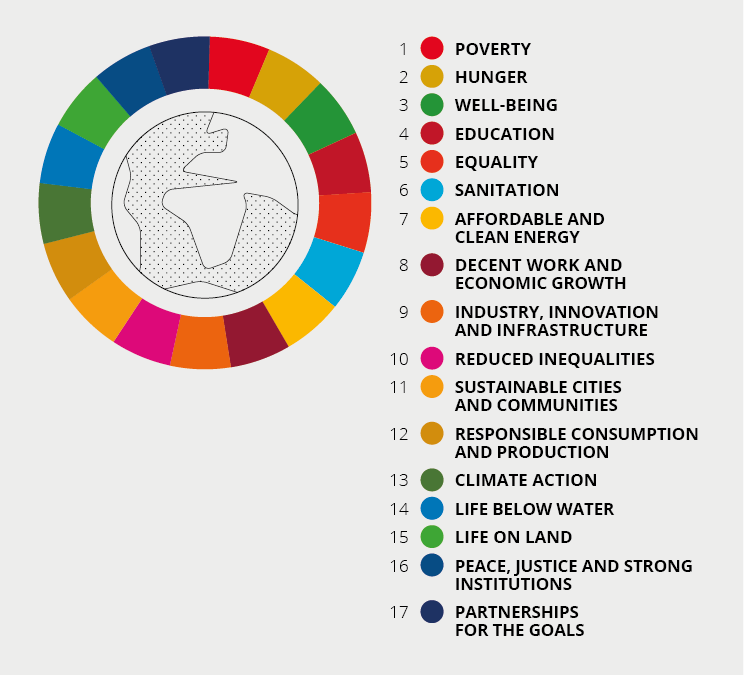
The SDGs reveal the breadth of the ecological, economic and social challenges we are currently facing. They touch on subjects including biodiversity, climate change, access to clean drinking water, education and gender equality. Utrecht University is helping achieve the SDGs through a broad range of degree programmes and innovative multidisciplinary research aimed at the further development of goals to serve as stepping stones on our way to a sustainable society. We are contributing to the SDGs through our operational management as well. Sustainable development is at the heart of everything we do.
The faculties and the Strategic Plan
The faculties have made a further interpretation of the university's course for the coming years. In the Faculties' plans, the faculties describe the ambitions for their organisation, for education and for research. With their own emphases, embedded in the university's Strategic Plan.

